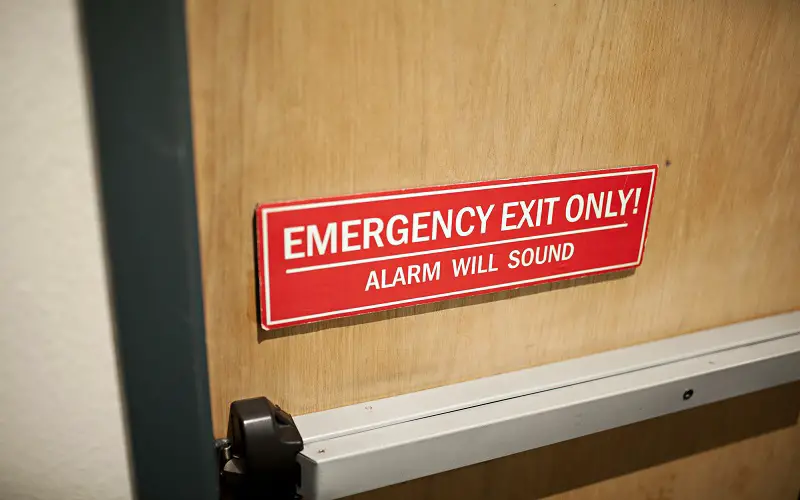Building a company from scratch is a tiresome process. Yet, it is the task of keeping it afloat that usually poses the biggest challenge for up-and-coming entrepreneurs. Preparing the business for emergencies stands out in this regard, as difficult times may befall any company at a moment’s notice.
Fires, earthquakes, and floods can threaten the company’s stability, putting a halt to business operations and resulting in insurmountable losses. Still, enterprises have the means to prepare themselves for a crisis before it strikes, and not all of them revolve around creating a business contingency plan and using tools such as C2 Meridian BCM Software.
If you are tasked with making the company prepared for an emergency, you need to address multiple issues. Besides creating an emergency fund, you might want to assign responsibility for managing the crisis, identify potential threats to your organization, and train employees on how to react to unique circumstances.
Here are some valuable guidelines to keep things running as smoothly as possible — even in the face of a rapidly-approaching disaster:
Establish a Clear Chain of Command
When an emergency occurs, it is crucial to have a designated leader in charge of making decisions and keeping everyone safe. The chain of command should be known to all employees and practiced regularly, so everyone knows what to do when things go south.
Even without the help of an emergency preparedness plan in the workplace, employees are likely to take the initiative and try to save the situation on their own. However, in the event of a serious accident or a natural disaster, the right person in charge may be hard to find.
If more than one person has command over a particular aspect of your company, they may end up working at cross-purposes. Because of this, it is best to establish a clear chain of command. This way, no matter how difficult things get, you always know who can make the right decisions for everyone’s benefit.
Keep Essential Documents Safe
In the event of a fire or flood, elements could destroy vital documents, such as contracts, licenses, and employee records. To prevent this from happening, keep them in a waterproof and fireproof safe or scan them and store them electronically. The latter option would be even better, as you wouldn’t have to worry about them perishing due to some accidents. This option is possible even when it comes to the documents that you receive by fax – all you need is a free fax online service.
The most important documents to keep safe include equipment and machinery manuals, customer information and contact details, employee files, along with their contracts and employment records, business licenses and permits, tax records, financial statements, copies of property deeds, and titles, insurance policies, and business plans.
Know Your Employees’ Strengths and Weaknesses
Next, you need to know exactly what your employees are capable of. Thanks to it, once an emergency situation occurs, you will be able to delegate responsibilities based on each team member’s skills and capabilities.
Some of your staff members might be better at keeping calm under pressure, while others may excel at problem-solving or physical labor. For instance, an employee might be poor at multi-tasking or working under pressure but expertly follow direct commands.
Additionally, it would be wise to identify those who have demonstrated above-average skills in handling emergencies. Such individuals can help lead the team during a crisis, making important decisions and ensuring everyone is on the same page.
Create an Emergency Fund
You can’t predict when an emergency will happen, but you can prepare for it financially. Setting aside some money to cover unexpected expenses will help you weather the storm until things return to normal.
An emergency fund is one of the basic elements of a company’s preparedness plan. It is designed to help with funding for unexpected losses and expenses. For instance, if a natural disaster damages the building, you need to have enough money to pay for repairs or rent alternative offices.
The size of an emergency fund depends on numerous factors, such as your industry, location, and the state of the economy. In fact, many states advise companies to keep ten percent of their gross sales in an emergency fund. But one thing is certain – the more money you keep in reserve, the better prepared you will be for any crisis that takes place.
Train Your Employees
The final step towards preparing the company for an emergency is educating your employees. Ensure everyone understands their role in the organization’s continuity and how to react when something goes wrong.
You might want to conduct special training sessions on fires, natural disasters, bomb threats, and other hazards that may wreak havoc on your workplace. Think ahead of possible scenarios and explain to employees how they should proceed if a crisis arises. Besides, teach them how to use fire extinguishers, evacuate the premises safely, and provide first aid if necessary.
The Bottom Line
Managing a company is a tough row to hoe, and preparing it for emergencies is no exception. Despite all the challenges, however, you can achieve your objective by following the five essential steps mentioned above. By doing so, you can minimize the impact of an emergency on your business and keep things running smoothly no matter what Mother Nature throws your way.
Although creating an effective disaster recovery plan is a complicated process that requires careful planning and execution, the payoffs are tremendous. The company can fully control the situation, operating with maximum efficiency until the crisis passes.
If you want to prepare your business for contingency, don’t hesitate to utilize professional services. An experienced IT firm will help you develop a comprehensive strategy covering all your organization’s areas quickly and effectively.




